Casual conversation and a palpable camaraderie are evident in the office of one high-ranking Iraqi Army officer. This officer smiles and inquires about how his close friend's family is faring at home.
The relationship between these two men is one commonly shared between friends of a personal level, but these two men also share a significant professional relationship.
Col. Nassir Naji, the personnel executive officer for the 4th Iraqi Army Division, sits at his desk and listens intently as Capt. Alan Cheung, and San Francisco, Calif. native with the personnel advisor for the 4th Iraqi Army Military Transition Team (MiTT), "Sakers", 25th Infantry Division, discusses topics ranging from family, recreation, sports, and the benefits of freshly-laid chicken eggs.
Their informal visits offer the two brothers-in-arms the chance to relax and develop a lasting relationship outside of their professional duties. However, creating and sustaining a relationship of cooperation and trust is only one of the duties performed on a daily basis by the 4IA MiTT.
The 4th IA MiTT works alongside the 4th IA Div. at Forward Operating Base Dagger, just outside of Tikrit, in an advisory role. Their primary function being to assist their IA partners in improving their operations and supporting the Iraqi people within their area of operations.
"Our job is to make sure they are prepared to stand up by themselves," said Sgt. 1st Class Joshua Conway, a Superior, Wis. native and the 4th IA MiTT non-commissioned officer-in-charge. "We do that by asking, 'Hey, have you thought about doing this'' or 'Maybe if we did this....'. We interact with our partners every day."
On a small corner of the Iraqi-operated FOB Dagger "Saker" Soldiers work in an environment far removed from standard Army-led bases in Iraq or their home station at Schofield Barracks, Hawaii,. Several members of the 4th IA MiTT feel fortunate to be able to be a part of a unique team.
"One of the beauties of a MiTT team is that you have an opportunity to do something that you wouldn't really get an opportunity to do," said 1st Lt. David Belyn, a McVeyton, Pa. native with the 4th IA MiTT division personnel executive officer. "All of us get to do things that directly impact the IA leaders and Iraqi people on a very high level."
For Conway, the only Soldier on the team with previous MiTT experience, the team was presented with the potential challenge of a steep learning curve for the majority of his team entered the deployment with little to no experience working closely with IA soldiers.
Attributing their success to the team's willingness to fill in any gaps or absences in staffing, Belyn noted how well the team has performed, especially during situations where Soldiers were required to perform at a higher or lower level.
"Most of the Soldiers here are doing a job that may not necessarily fit their rank," said Belyn. "That's kind of the nature of a MiTT team. You can have a captain driving, a major as gunner and a sergeant as convoy commander. We all do what we need to do to accomplish the mission."
"The guys have done great," Conway said. "The team is made up of Soldiers who always think of new ways to improve things and ways to help the each other or their Iraqi partners that I never could have thought of. It's all about what we can do better."
Continuous improvement in operations and quality of life has been an important goal to many of the "Saker" Soldiers, as they took initiative in improving their personal environment immediately upon arriving to FOB Dagger.
"When we got here we had a bunch of large HESCO barriers out back," said Pfc. Ross Hart, a signal systems support specialist and Washington, Ind. native with the 4th IA MiTT. "We all worked together to move them away for more room."
The space was filled with recreational and leisure equipment, including a home-made ping pong table and a vegetable garden.
"We don't have all of the luxuries of some of the bigger FOBs, but we make the best of what we do have," said Conway.
In addition, the team worked steadily to clean up their working environment.
"We typically perform beautification of the FOB on a weekly basis," said Belyn.
The team is rallied under the supervision and guidance of Col. Gary David, the 4th IA MiTT commander, who, according to Belyn, takes an extremely proactive role in further improving the team's results, no matter what the project may be.
For Conway, however, the importance of the pursuit of improvement lies primarily with their continuous collaboration with their Iraqi partners. When working so closely, everybody develops a natural camaraderie, Conway noted.
"Working on a small FOB, everybody knows each other and can interact easier, like a small town," Conway said.
Like Cheung, some believe the interaction between the "Saker" Soldiers and the 4th IA soldiers is paramount and encourages the team to develop friendships with their partners.
"Every Friday we do group physical training, sometimes competitively with the IA guys," Belyn said. "We play basketball, and volleyball and soccer."
"The IA guys are very good at soccer and always give us a challenge," said Belyn.
Aside from the challenge of friendly, yet competitive sports between friends, the challenges of security around the region have quickly dwindled.
"In the past, while we were in the lead, we may have limited what the Iraqis were able to do at times," Conway continued. "Now that they're in the front I see them doing more and functioning well independently."
Leading the effort around the region, many members of the 4th IA credit the MiTT for their assistance in their daily operations.
"The MiTT has been very helpful to us," said Nassir. "I've worked with five different MiTTs and this team is very, very helpful in our operations."
Conway, however, believes the 4th IA is primarily responsible for the escalating peace and lower levels of violence in the area.
"Last deployment, the FOB would get hit with mortars and small arms fire all the time, but this deployment is much quieter. The 4th IA has done its job well here," Conway said.
The healthy mix of personal and professional interaction between these two military teams, both dedicated to improving the surrounding area, can be seen as a primary ingredient to the recipe for success outside of Tikrit.
Whether or not the recipe requires a few freshly-laid chicken eggs, remains to be seen, but the recipe certainly requires commitment to success and dedication to improvement. These two essential elements may very well begin with personal relationships between comrades and the continuing friendship between IA soldiers and Soldiers of the U.S. military.
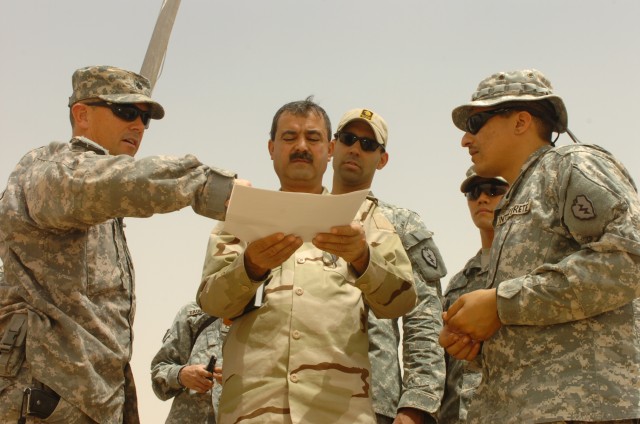
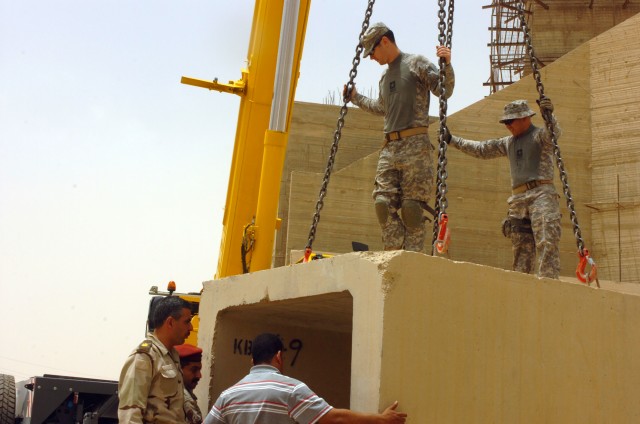
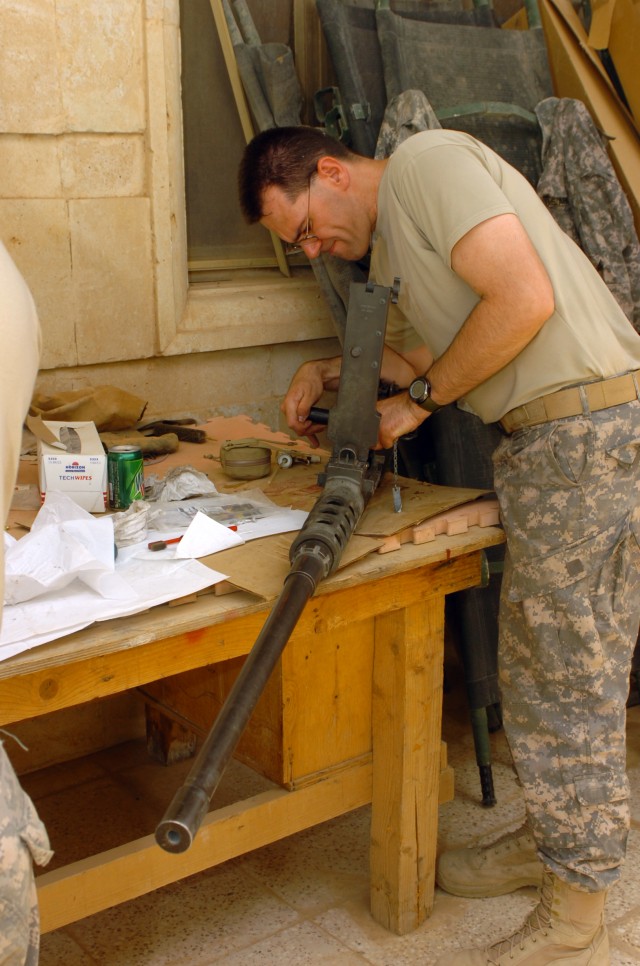
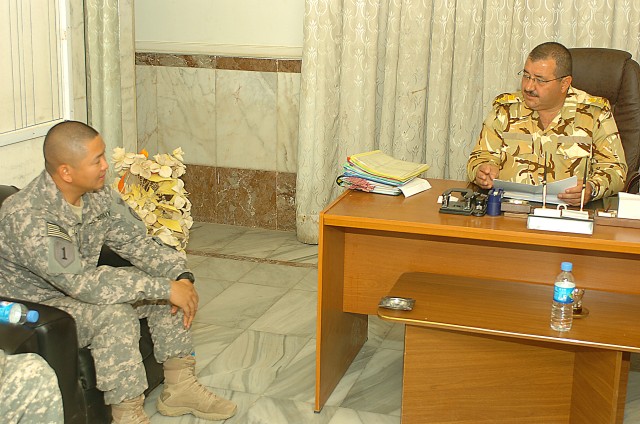
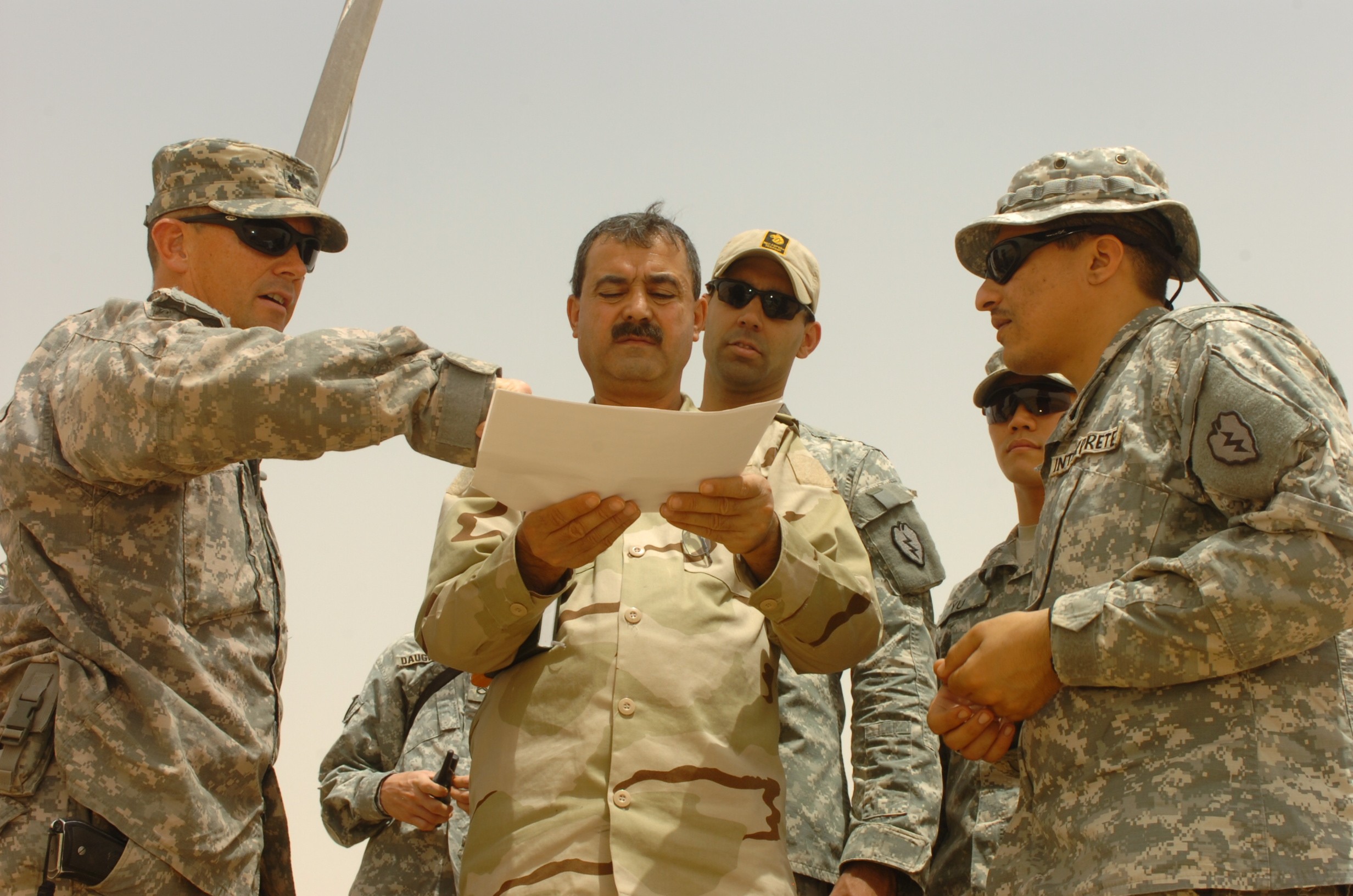
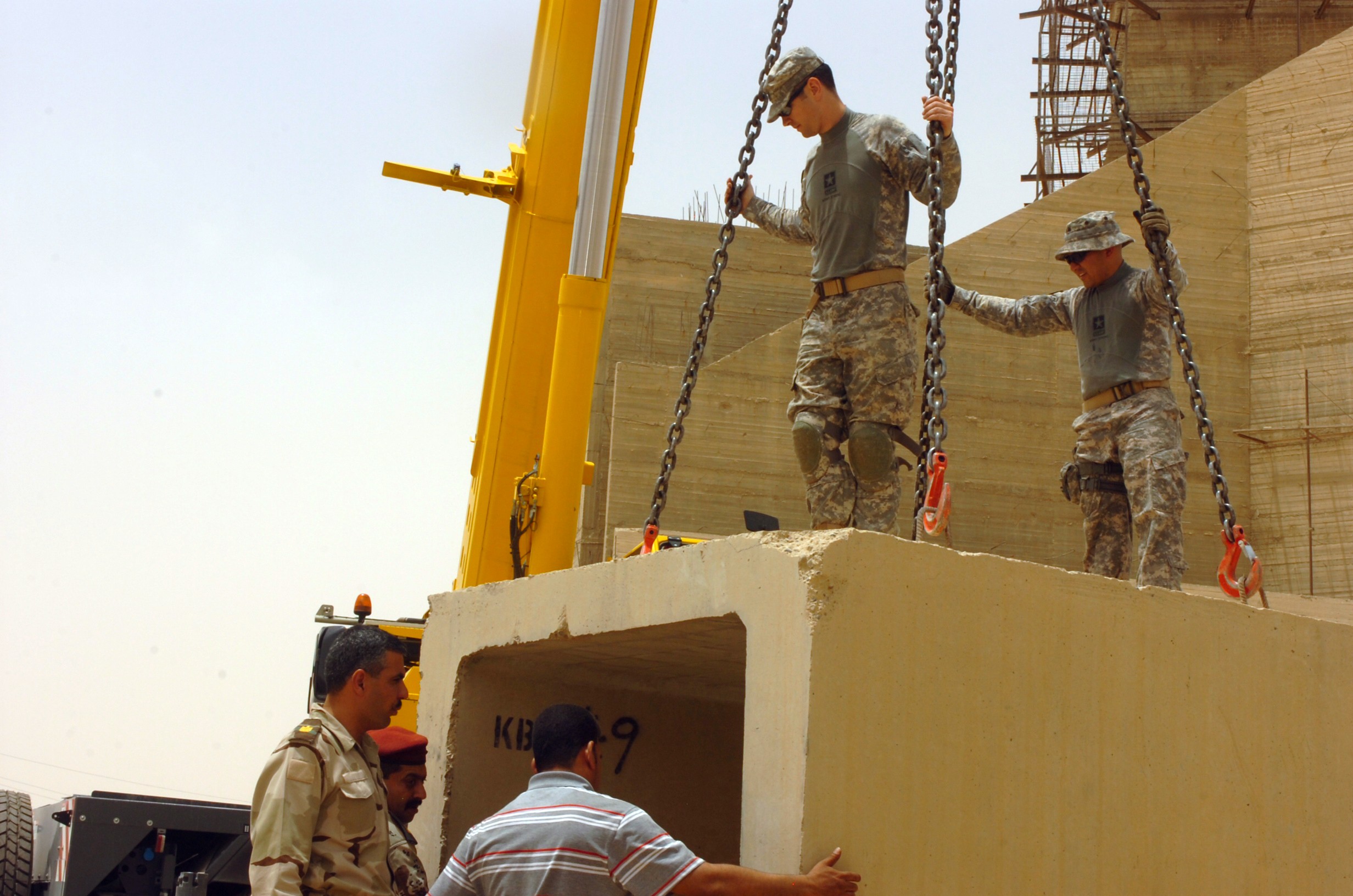
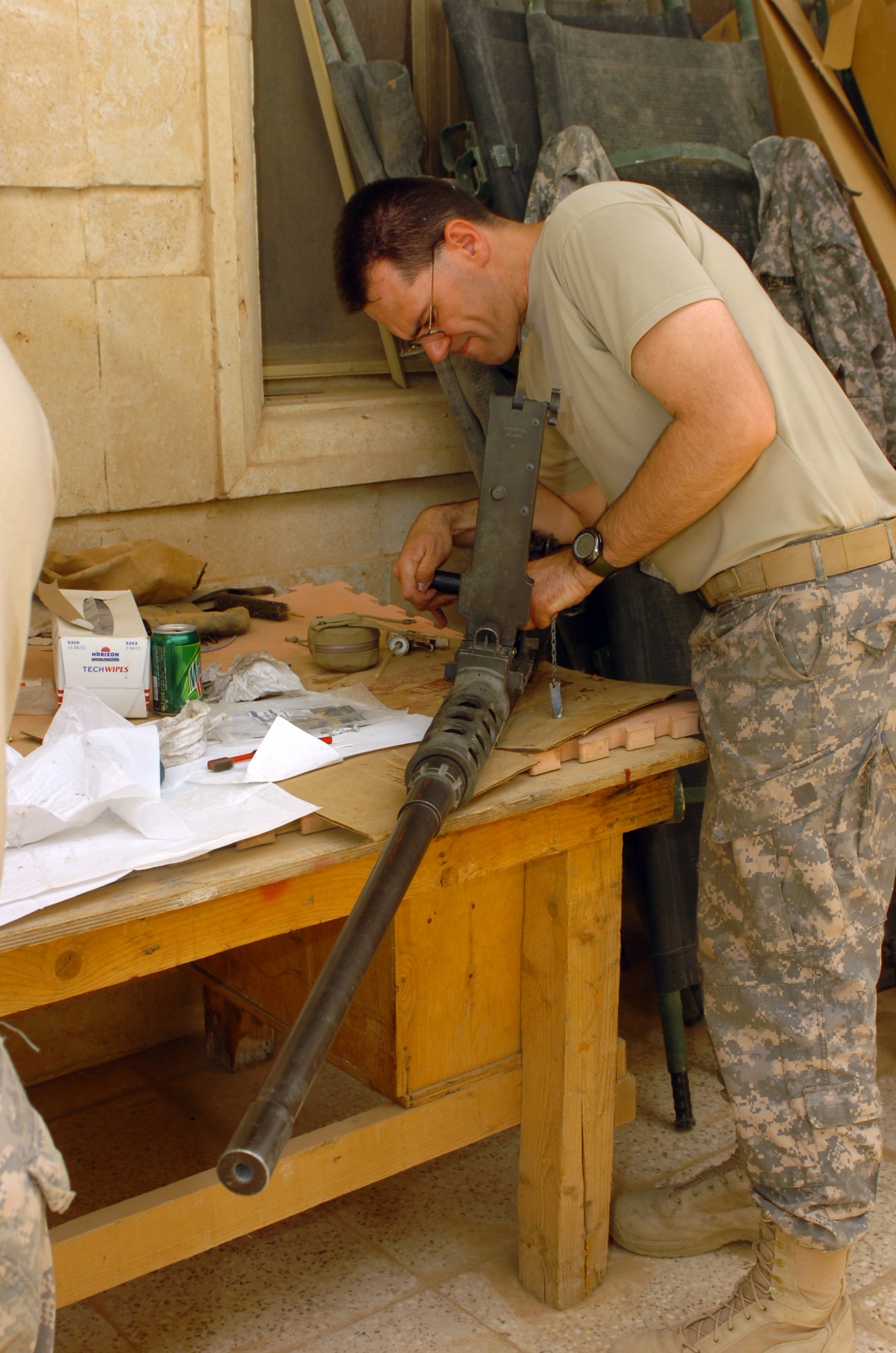
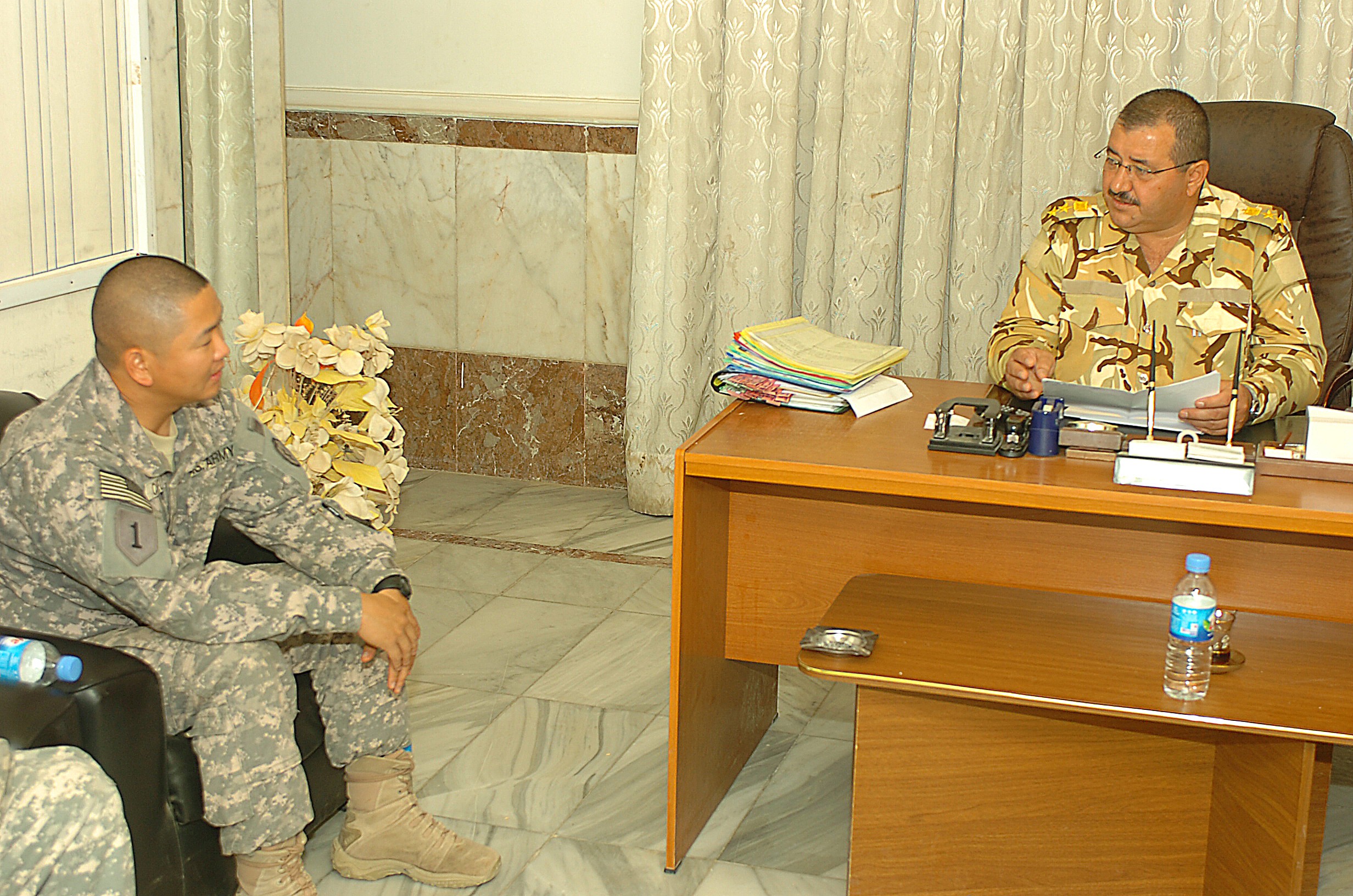
Social Sharing